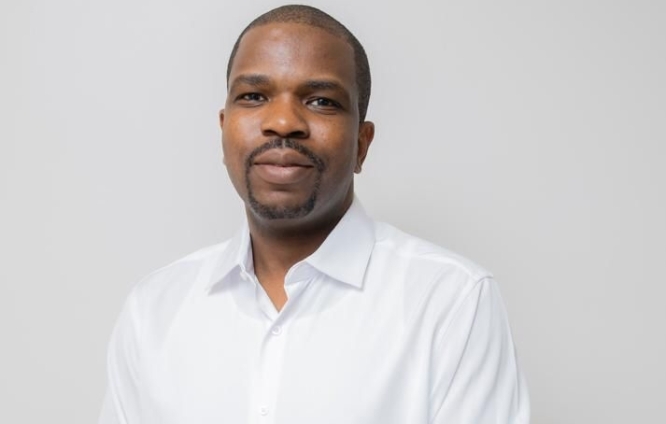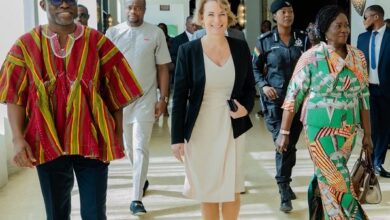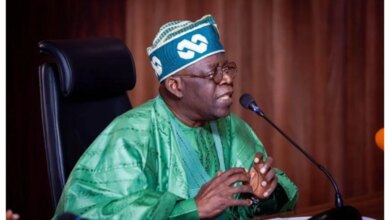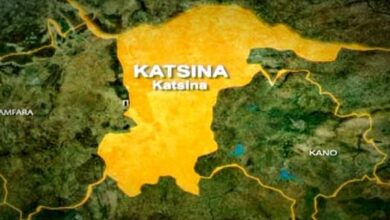Rethinking Ghana’s language policy in education: An Afrocentric defence of Mother tongue instruction


Rethinking Ghana’s language policy in education: An Afrocentric defence of Mother tongue instruction
The history of language and education in Africa cannot be separated from the colonial project. British colonial education was never intended to create independent thinkers; it was designed to produce interpreters, clerks, and subordinates to the empire’s bureaucratic machinery. As Albert Luthuli of South Africa lamented, colonial schools were structured to make Africans “hewers of wood and drawers of water.”
Consequently, Ghana, like much of the continent, inherited this system unchanged. The English language, instead of serving as a medium of communication, became a symbol of elitism and social mobility. It is divided rather than unified. It made many young Africans feel that intelligence was foreign to their own tongues and that the ability to think or express themselves meaningfully was tied to fluency in English.
It is precisely for this reason that the Minister of Education’s recent call for the use of mother tongues as a medium of instruction in basic schools is both timely and deeply welcome. The policy represents not only an educational adjustment but a symbolic act of national reclamation. It marks a conscious effort to reverse the profound psychological and cultural dislocation that colonial schooling inflicted on the African mind. Moreover, this call acknowledges that language is not merely a channel for instruction but the foundation upon which thought, identity, and collective dignity are built. When people are compelled to think, dream, and express themselves entirely in another’s language, they unconsciously internalise subordination. Therefore, Ghana’s renewed focus on linguistic empowerment through local instruction is an essential step toward restoring self-belief and intellectual independence.
The Afrocentric argument for mother tongue education is not simply about linguistic preference; it is about reclaiming epistemic sovereignty. Language is never neutral; it is the grammar of consciousness, the vessel through which a people understand reality. A child who learns science, morality, and art in their first language is not merely learning content but internalising a worldview. Indeed, language carries culture, spirituality, and value systems, shaping how individuals perceive themselves and their environment. Research by UNESCO and several African-centered scholars has long confirmed that children learn faster and retain knowledge more effectively when taught in their native languages. Therefore, using indigenous languages as the foundation of early education is both culturally restorative and pedagogically sound.
My own educational journey offers vivid evidence of this truth. I still recall my experiences in primary and secondary school, where much of what we learned was alien to our lives. If I had been taught the parts of a flower in my native Ewe tongue, I might have gone on to become a taxonomist, a scientist rooted in the natural systems of my land. Instead, I was compelled to memorise English terms disconnected from my cultural and emotional reality. I could recite them flawlessly yet never internalise their meaning. Similarly, I remember sitting in my geography class at Bishop Herman College learning about the Volga River in Russia, the Rocky Mountains in the United States, and glaciated landforms that had no bearing on the world I inhabited. We were made to draw and label hanging valleys and cirques that we had never seen and would likely never encounter. The closest thing to those glaciers in our experience was the frozen block of ice kept in a kenkey seller’s bucket. Yet we were examined on such abstractions as though our survival depended on them.
This educational model, inherited from colonial systems, has trained African students to master abstractions detached from their own environment while neglecting the immediate world around them. We spent years memorising that water wets glass, reciting Newton’s laws, and repeating textbook definitions without any critical explanation. No one ever told us why water wets glass but not plastic. The system taught us to reproduce information, not to reason. Consequently, our schools have produced generations of citizens who fear inquiry and revere authority. Mother tongue education, by contrast, grounds knowledge in experience. It enables teachers to explain scientific, moral, and social concepts in the language of life, not in the cold syntax of borrowed words.
The problem of memorisation in Ghana’s schools is not that our children lack intellect; rather, they are taught in a language that distances understanding from experience. I never memorised anything in law school, yet I was told I would fail. I did not fail because I understood. The culture of rote learning is a direct consequence of linguistic alienation. I remember being told that the black-letter laws must be memorised verbatim and that one could not interpret them differently. Yet, as someone who never favoured blind memorisation, I resisted this norm. I chose to engage with law through reason and context, carving meaning from understanding rather than from mechanical recall. It may not have earned me the highest grades, but it gave me a depth of comprehension far beyond those who memorised without reflection.
Critics of the new policy, however, argue that the problem is not language but poor teaching. They contend that English promotes national unity and global competitiveness, enabling students from different regions to take the same exams and communicate worldwide. Moreover, they fear that implementing instruction in multiple local languages would fragment the education system and increase administrative burdens. This view, while seemingly practical, reveals a more profound misunderstanding of the issue. It treats language as a mere instrument of communication rather than the cognitive and cultural framework through which meaning is constructed.
On the contrary, the claim that Ghana’s multilingualism makes indigenous education impractical is itself a colonial assumption, the belief that African diversity is a liability rather than a strength. In truth, Ghana’s linguistic richness can be managed intelligently. In major urban centres such as Accra and Tema, where linguistic overlap is high, Twi and Ga could be adopted interchangeably alongside English. In rural areas, however, education should be tied to the soil of origin. Local teachers fluent in the community’s tongue should handle early-grade instruction, while those posted from elsewhere should be incentivised to learn the language of the people they serve. This would not only promote inclusivity but also foster respect for cultural diversity within the teaching profession.
Furthermore, this approach strikes a balance between cultural authenticity and administrative practicality. It does not seek to abolish English but to dethrone its monopoly. Once children grasp scientific and moral concepts in their own languages, English can function merely as a tool of translation for global communication, not as the sole gateway to knowledge. Tanzania and Ethiopia have demonstrated that such bilingual systems work effectively when there is political will and cultural confidence.
Nevertheless, the problem extends beyond language alone. The very curriculum we inherited is an artifact of colonial ideology. When I studied geography in secondary school, I learned about glaciated valleys, the Appalachians, and the Rockies, yet nothing about the Volta Basin or the Atewa Range. American children are never made to study Ghanaian landforms, but Ghanaian children are compelled to learn about America’s. Our textbooks, often written by non-Africans, embed a Eurocentric worldview that alienates us from our heritage. Therefore, the crisis is not only linguistic but epistemological. A colonial curriculum, even when taught in African languages, will still yield colonial outcomes unless the content itself is decolonised.
In this regard, the conversation on language must expand into a larger project of cultural emancipation. If Ghana is truly committed to transformation, we must decolonise every sphere of public life. This includes our courts, classrooms, parliaments, and even our wardrobes. Lawyers and judges must drop the colonial horsehair wigs that symbolise psychological servitude. The President and his ministers must abandon Western suits and ties and instead reflect African identity through indigenous attire. Parliament should normalise the use of local dialects, with translation systems to ensure inclusivity, just as the European Union operates across multiple languages. Likewise, researchers and academics must reject the blind imitation of Western citation metrics and adopt Afrocentric methodologies that honour indigenous knowledge systems. True transformation demands courage, the courage to break with mimicry and rediscover ourselves.
Hence, this policy is not merely an educational reform but a profound political and cultural act. It proclaims to every Ghanaian child that they can think, analyse, and innovate in their own voice. While concerns about implementation, teacher training, and resource translation are valid, they are logistical challenges, not philosophical barriers. With adequate planning, investment, and national will, these obstacles can be overcome. What cannot wait, however, is the urgent need for psychological liberation. Language is the soul of civilisation. To be taught entirely in a foreign tongue is to live intellectually in exile.
Moreover, the argument that English ensures global relevance must be critically interrogated. Nations such as Japan, China, and South Korea achieved industrial and scientific breakthroughs not by prioritising English but by mastering complex concepts in their own languages before translating them for global discourse. Their success stems from cultural self-confidence, not linguistic imitation. Ghana can and must follow this path. We should aspire to produce children who grasp the logic of science in Akan, the ethics of community in Ga, and the poetry of existence in Ewe before expressing those insights in any other tongue. That is how originality and innovation are born.
Ultimately, the inability of many Ghanaian students to apply knowledge does not result from language deficiencies but from an education system that rewards memorisation over understanding and conformity over creativity. As my own experience shows, true learning begins when comprehension replaces repetition. The deeper we root education in familiar languages, contexts, and cultures, the more critical, creative, and confident our students will become.
In the final analysis, the mother tongue policy must be seen not as an attack on English but as a restoration of intellectual balance. English will remain a useful bridge for global communication, but it must no longer define intelligence or dictate belonging. Ghana’s future depends on nurturing thinkers who see the world through African eyes, reason through African experience, and articulate knowledge through African voices. We cannot build a self-reliant nation in a borrowed tongue.
DISCLAIMER: The Views, Comments, Opinions, Contributions and Statements made by Readers and Contributors on this platform do not necessarily represent the views or policy of Multimedia Group Limited.
DISCLAIMER: The Views, Comments, Opinions, Contributions and Statements made by Readers and Contributors on this platform do not necessarily represent the views or policy of Multimedia Group Limited.
Source link





